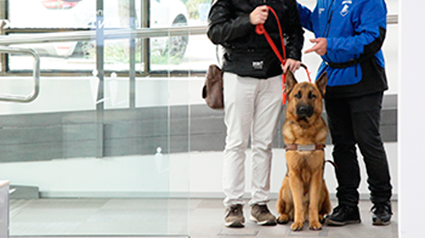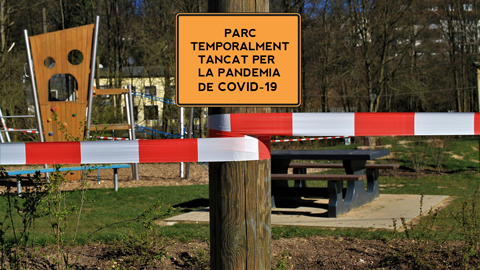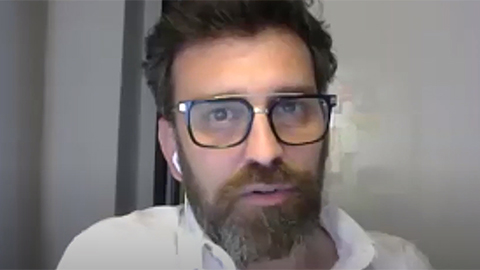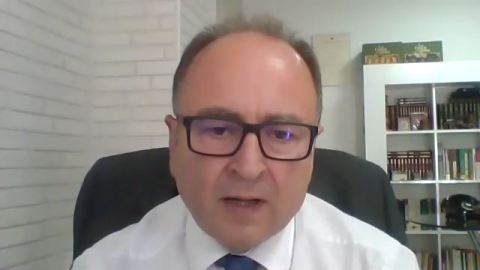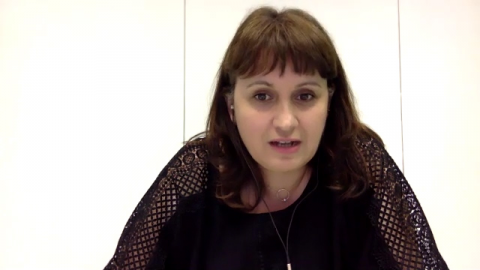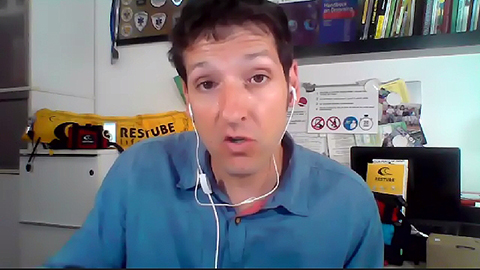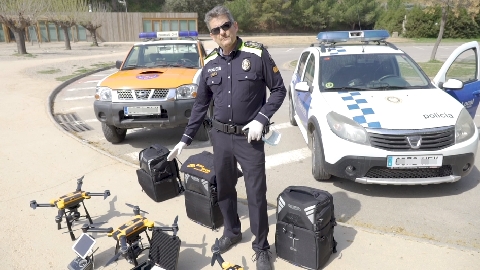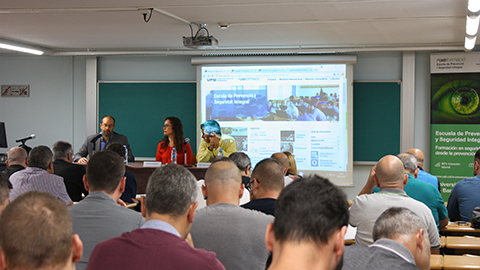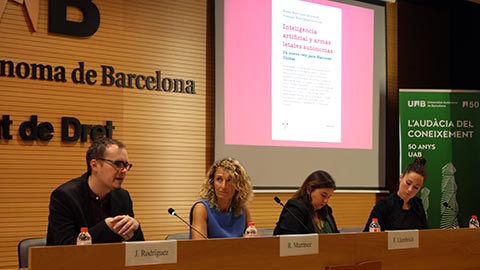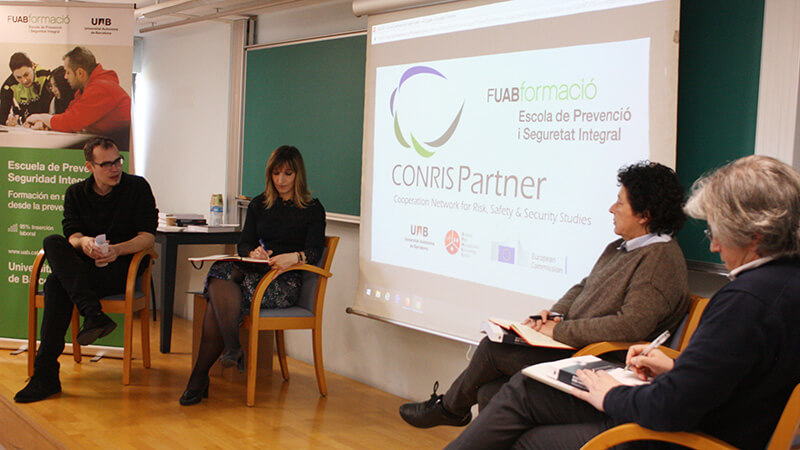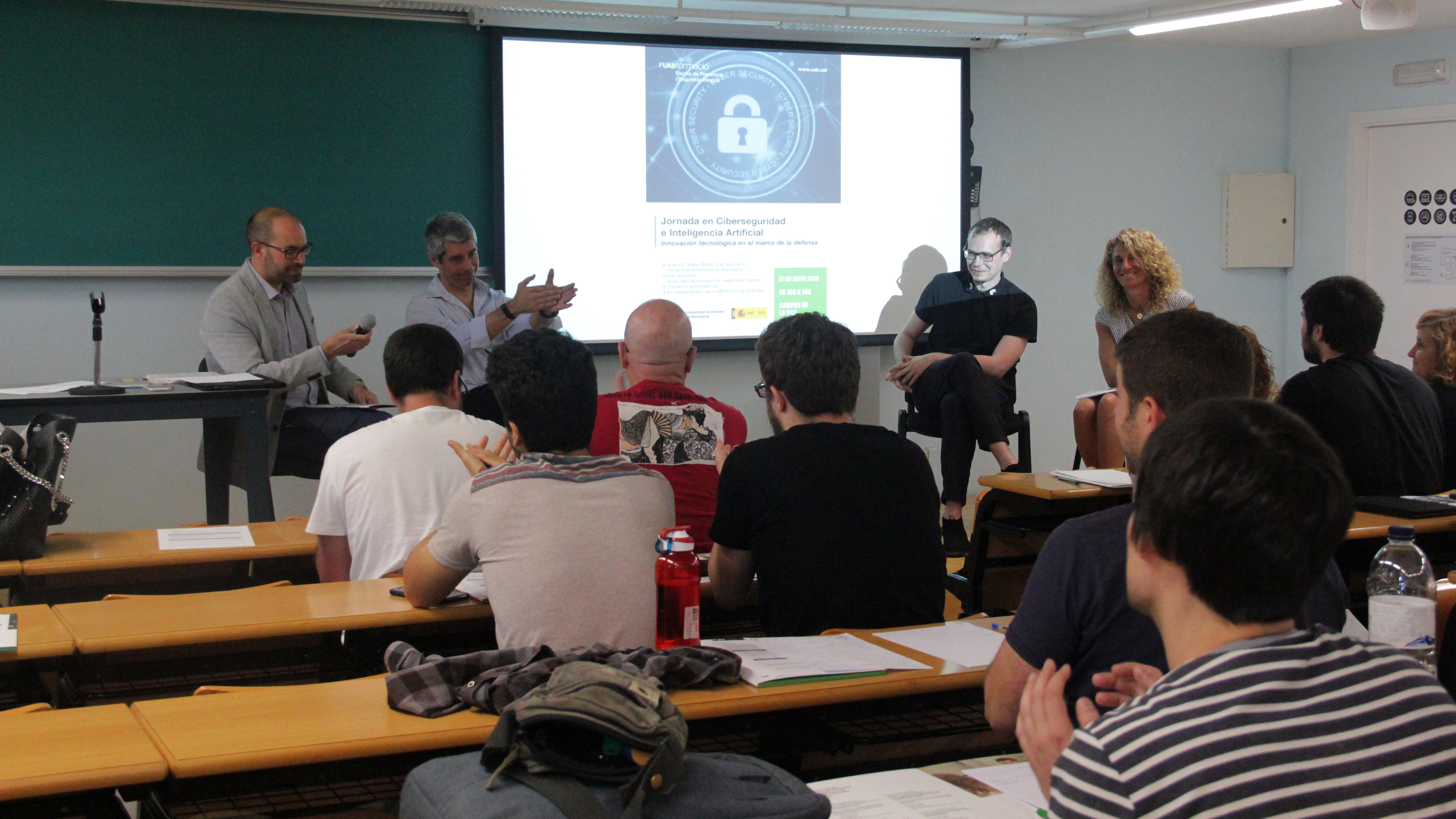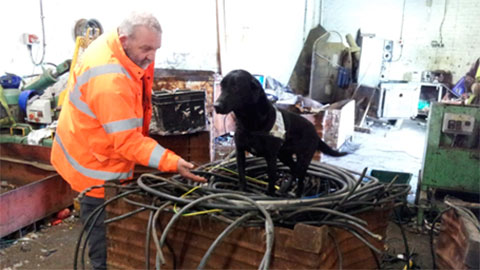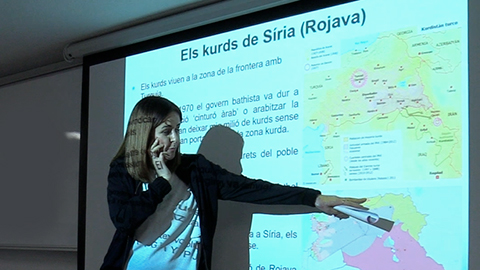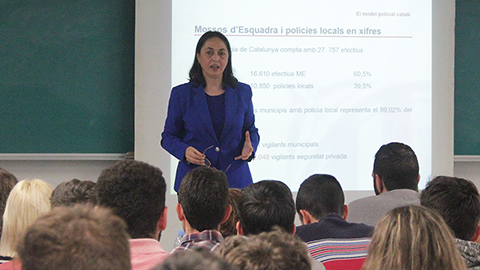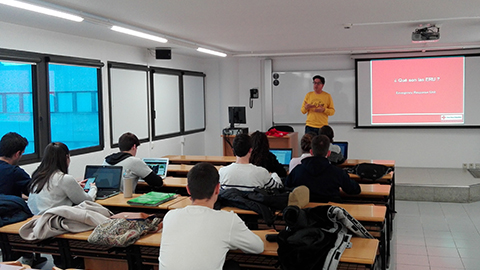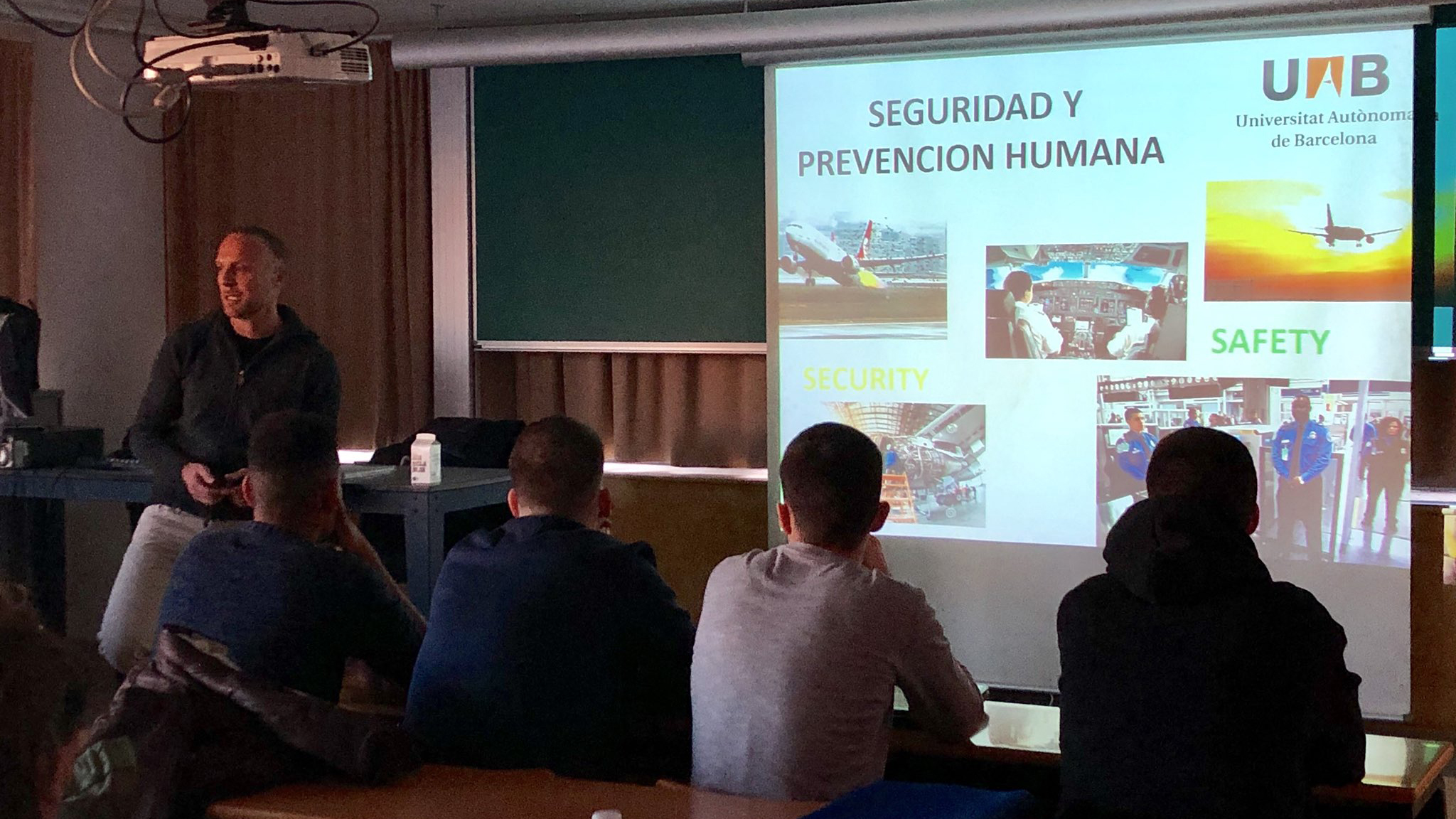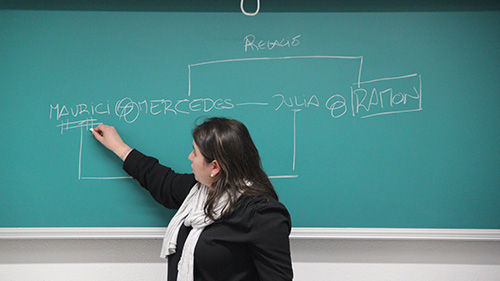Seminars and conferences on prevention and safety
Online conference: Urban safety in a pandemic
On 18 November the EPSI held the online conference Urban safety in a pandemic, in which emergency-management professionals and other actors discussed safety and security during the health crisis and the lessons learned during it. In addition, social and community activists shared ideas about how the pandemic has accentuated the challenges facing vulnerable groups. In collaboration with the Ministry of Defence.
Safe tourism: beyond COVID-19
Session led by Ferran Anguera: graduate in prevention and integral safety and security, teacher and expert in tourism safety and security, prevention, and civil protection.
An analysis of the impact of the Coronavirus on the tourism and hotel industry, and how it has adapted to the new hygiene and safety measures to safeguard the health of tourists and workers.
Held on 2 June 2020.
Supervising food safety after Covid-19
A session led by Juan Ramón Hidalgo, an expert in law and food safety, coordinator of the master's degree in Management of Food Safety and Quality, and director of the QSA Forum on Food Standards, FUAB-EPSI.
The session explored the health authorities' rules and recommendations towards safer and more responsible practice in the food industry after Covid-19.
Held on 9 June 2020.
Prevention and safety: principal challenges in the return of sport
A session led by Maria Prados: a director of safety and security, an expert in sports events and one of the School's first cohort of graduates in Prevention and Integral Safety and Security.
The seminar explored the topic of safety and security in events that attract large crowds and the protocols that will emerge from the Covid-19 pandemic.
Held on 16 June 2020.
"Will I be able to take a swim?" Summer in the context of Covid-19
A session led by Ramsés Martí: a lifesaving and rescue instructor specialising in safety in aquatic environments, a consultant on surveillance and rescue services, and a former student on the master's degree in Risk and Emergency Management.
The speaker analysed the safety measures that should be implemented in aquatic environments to protect bathers, other users and monitoring staff.
Held on 26 May 2020.
New safety and security protocol in Spanish league football matches
A session led by and Pedro Tomás Boticario: head of Safety with La Liga and an expert on risk assessment, crisis management and protection in professional football stadiums.
The session dealt with safety and security protocols for organising and managing football matches, like the one devised by the Safety and Security Directorate of La Liga to allow clubs to return to the competition after Covid-19.
Held on 30 June 2020.
Drones, public safety and the state of alarm
A session led by Joan Pérez Arteaga: coordinator of the specialist course Drone Piloting and Operation in Security and Emergency Services and chief inspector of the Parets del Vallès local police force.
The session focused on the use of drone technology by this town's police and civil protection forces to enforce lockdown rules.
Held on 12 May 2020.
Drones, robotics and artificial intelligence in armed conflicts
On 4 October 2017, the EPSI held the conference entitled The use of drones, robotics and artificial intelligence in armed conflicts: balancing security, ethics and legality , with collaboration from the Spanish Institute of Strategic Studies and funding from the Secretariat General of Defence Policy of the Spanish Ministry of Defence. The discussion centred on the drones controversy, ethical and legal aspects of using robotic elements or unmanned aircraft, and the legitimacy of research into artificial intelligence.
Artificial intelligence and autonomous lethal weapons
At the Faculty of Law on 4 October 2018, teaching staff and other experts on international security discussed the need to regulate the research and use of autonomous lethal weapons, at the presentation of the campaign Stop Killer Robots. Lecturers Joaquín Rodríguez and Roser Martínez also presented their book Inteligencia Artificial y Armas Letales Autónomas. Un nuevo reto para las Naciones Unidas.
Science in the management of natural disasters: a European proposal
On 11 February 2019, the School hosted the conference Science in the management of natural disasters: a European proposal , in which representatives of local and international institutions tried to break down barriers in risk and emergency management in Catalonia and Europe, given the need to free up the flow of information in risk prevention and the importance of cooperation between the agents involved.
Cybersecurity and artificial intelligence: technological innovation in defence
On 31 May 2019, the EPSI organised the conference Cybersecurity and artificial intelligence: technological innovation in defence, in collaboration with the Spanish Ministry of Defence. The conference focused on the massive penetration of new technologies and the new risks introduced by the digitisation of administrative processes, cloud connectivity and the blockchain.
Detection dogs and forensic investigation - Mick Swindells
Students of the graduate diploma in Canine Unit Instruction were given an online class on 7 May 2020, taught by Mick Swindells: a retired police sergeant and member of the canine units for detection of explosives, drugs and human remains (1974-1979). They learned about the tasks that these canine units can perform: searching for human remains and corpses, detecting submerged bodies, forensic investigation, and detection of synthetic DNA in criminal investigations.
Presentation of the international campaign Stop Killer Robots ¿ Mary Wareham
On 21 November 2019, the EPSI played host to Mary Wareham: advocacy director of the Arms Division of Human Rights Watch and global coordinator of the campaign Stop Killer Robots. Mary Wareham played a key role in the implementation of the treaty to ban anti-personnel mines, for which she was a joint recipient of a Nobel Peace Prize in 1997. She introduced the students to the international Campaign to Stop Killer Robots, and explained how close we are to reaching a worldwide agreement on banning lethal autonomous weapons.
Perspectives on security: Amina Hussein and the Kurdish conflict
On 17 January 2020, the Kurdish journalist and translator Amina Hussein gave a lecture at the School to explain the origins and history of Kurdistan, and the role of the Rojava territory in the Syrian civil war. She gave a witness account of the attack by Turkey in October 2019, having lived through the bombing and the flight of civilians as Turkish troops and pro-Turkish Syrian armed groups entered.
The Catalan policing model
On 5 April 2019, Deputy Director General for Coordination of the Catalan police force Begoña Curto lectured first-year bachelor's degree students on the Catalan policing model, explaining the competences and management of the different security forces and how they coordinate with each other.
Emergency response and management by the Red Cross
The provincial coordinator of the Red Cross in Girona, Jordi Martori talked to third-year undergraduates in Prevention and Integral Safety and Security about how the Red Cross handles emergencies at both national and international levels, in a session organised as part of the course Integrated Management Models: Safety and Security.
The session took place on 20 December 2019.
Safety & Security in civil aviation
Simone Tiburzi, an experienced pilot with the Italian air force, gave second-year undergraduates a talk on safety and security in civil aviation, in February 2019. The lecture dealt with the safety and security protocols in place at airports and on board planes, highlighting the difference between the concepts of safety and security. The former encompasses all the preventive processes to reduce potential harm by identifying and managing risks, while the latter focuses more on physical security and protection.
¿Sense cadàver¿ and the case of Ramón Laso
Fàtima Llambrich, a former student of the School and a journalist with TV3, is the author of a non-fictional book Sense cadàver (Ara Llibres, 2016), based on the case of Ramón Laso. This was a ground-breaking case in Spain, as it led for the first time to a 30-year prison sentence for murder, in 2012, without the bodies of the victims ever appearing, after a thorough investigation. During the session, held on 26 January 2018, the speaker spelled out how the Missing Persons Unit of the Mossos d'Esquadra (Catalan police force) investigated the case.
